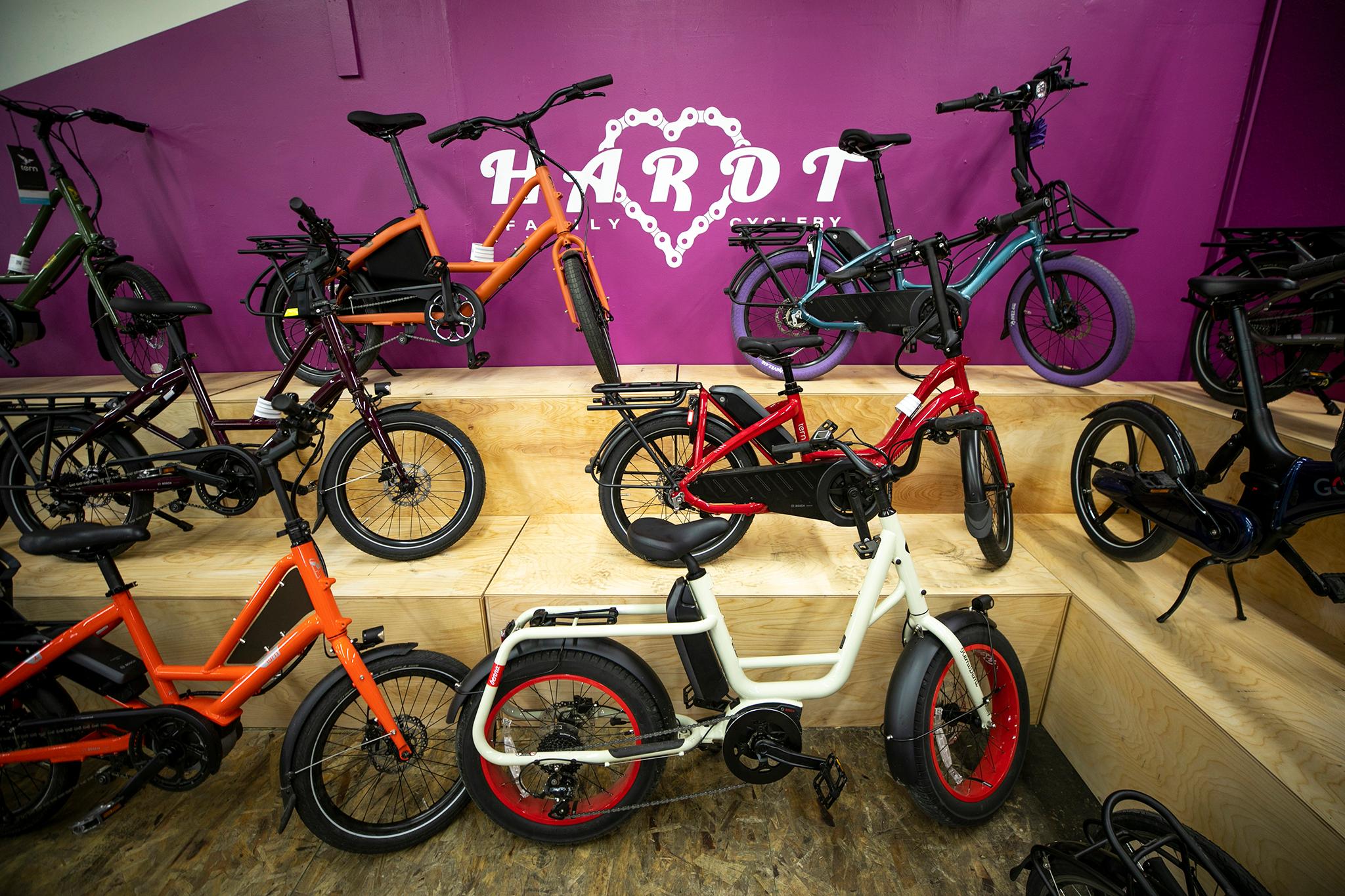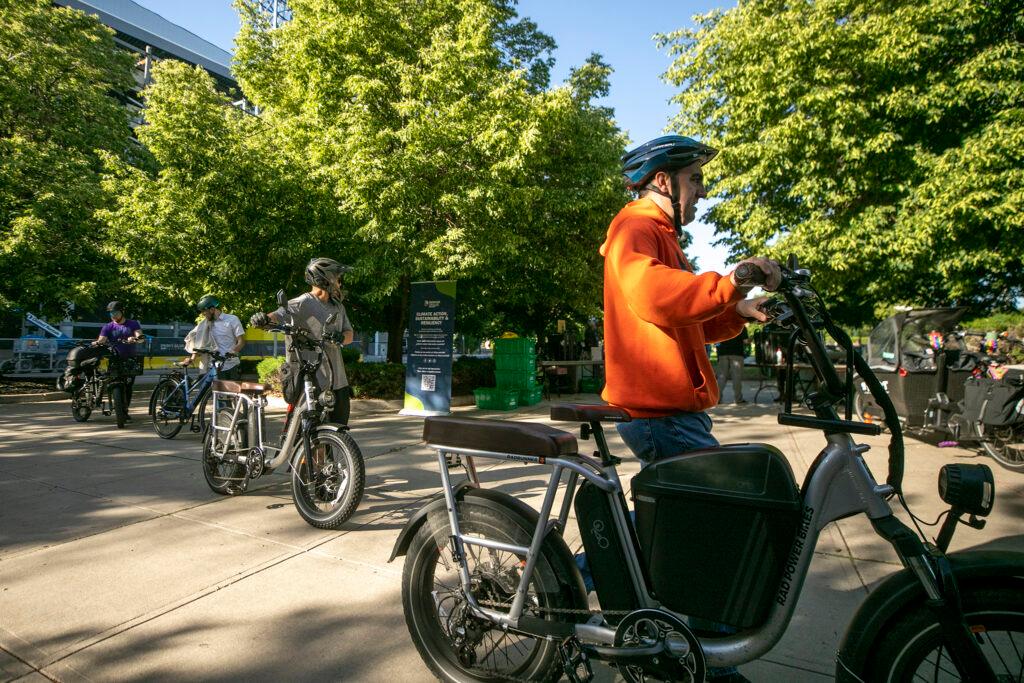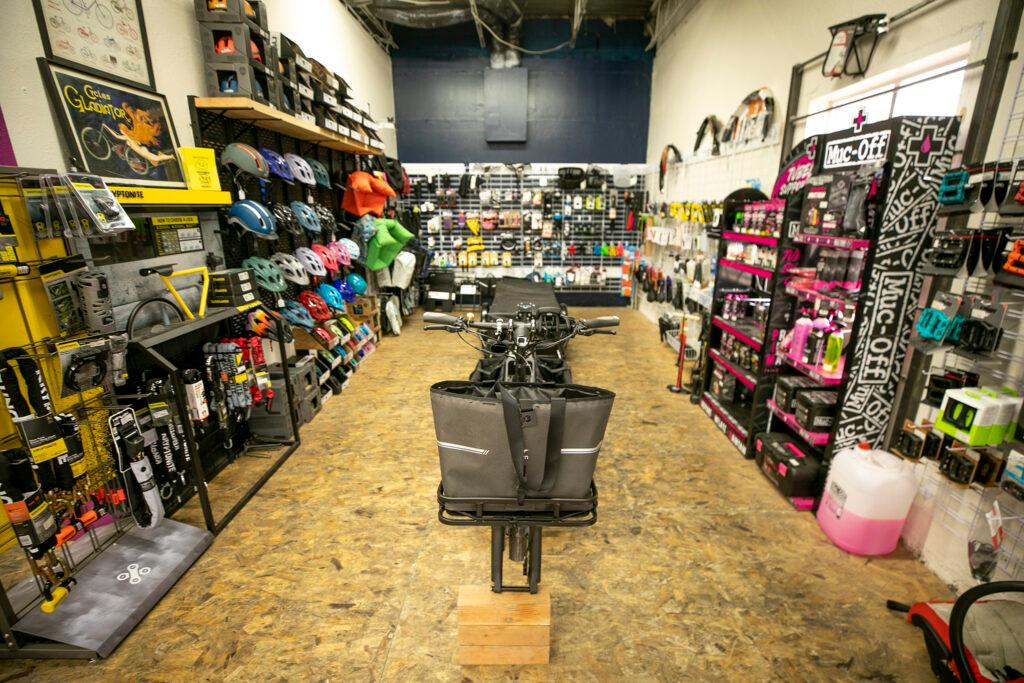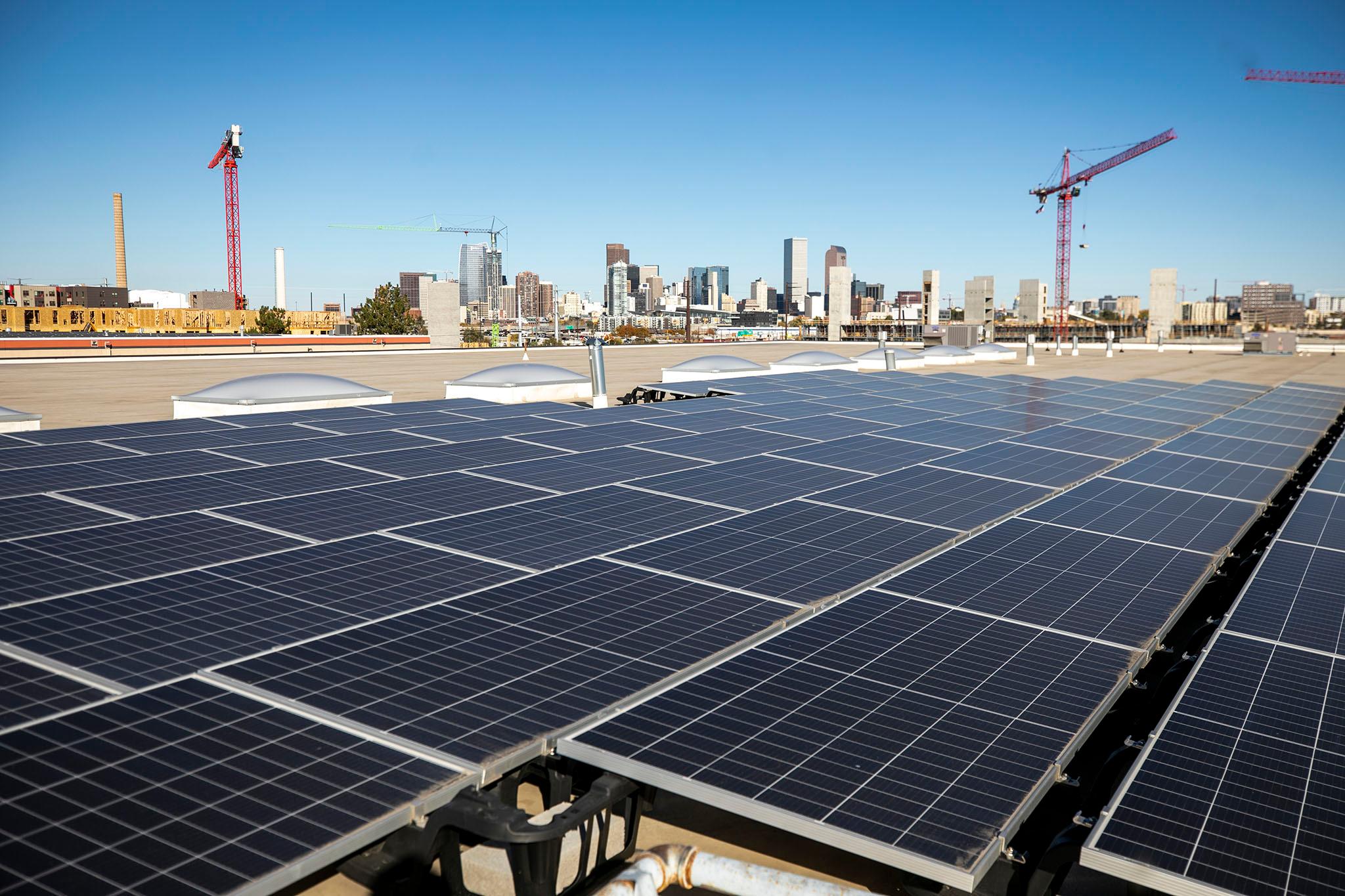
Colorado is set to launch a statewide e-bike tax credit on April 1, offering every resident a $450 point-of-sale discount off the purchase of a battery-powered bicycle.
The statewide program marks one of the country’s most ambitious efforts to cut climate-warming emissions using taxpayer-funded e-bike discounts. There’s just one major problem: Most major retailers have yet to sign up to participate.
A list assembled by the Colorado Energy Office shows only 24 bike sellers are guaranteed to honor the rebates. That means residents could struggle to redeem the discount at local bike shops and major online retailers after the program launches next week.
Like other shop managers, MacKenzie Hardt, the owner of Hardt Family Cyclery in Aurora, won’t participate due to the state’s reimbursement plan. The program currently requires a retailer to front the cost of the rebate, which it can’t recover until filing its 2024 taxes. Hardt said that’s an unreasonable delay given his business’s small margins and limited cash flow.
“I have to be able to support myself, my family, and my one employee,” Hardt told CPR News. “This program doesn’t allow for that, which is really unfortunate.”
Sarah Thorne, a senior program manager running the rebates for the Colorado Energy Office, is trying to fix the problem. By 2025, she said the Colorado Department of Revenue should have a system in place to reimburse bike sellers quarterly instead of annually. In the meantime, the state is working with a pair of financial lenders — ANB Bank and the Colorado Enterprise Fund — to offer loans to support bike sellers through the program's first year.
“We anticipated for 2024, it would be a fairly slow rollout and we wouldn’t have a large participation from retailers,” Thorne said. “Once quarterly reimbursements start in 2025, we should see a much larger uptake.”

A hiccup after a string of success stories
Colorado’s love affair with e-bike discounts is now almost two years old.
Denver kicked off the romance on Earth Day 2022 when it opened online applications for an e-bike program offering e-bike vouchers worth up to $1,400. Residents snatched up the first discounts within minutes, but the city kept offering new rounds of vouchers every few months with funding from a special sales tax for climate-related projects. The city’s data show it has since subsidized the purchase of almost 8,000 battery-powered bicycles from local shops.
Other communities across the U.S. and Canada soon followed Denver’s lead. The strategy offered a relatively cheap way to clean up transportation, which is often the largest source of carbon pollution in many states and cities.
The state of Colorado joined the party last summer, offering moderate-income residents a $500 discount and low-income residents a $1,100 discount, plus extra cash for the purchase of a cargo e-bike or an adaptive e-bike. It closed applications in February after exhausting its funding for the program, which has helped 5,611 residents purchase an e-bike, according to numbers from the Colorado Energy Office.
The state’s new e-bike tax credit is a long-term bet on the climate strategy. Approved through a law signed by Gov. Jared Polis last year, the program will run from April 2024 through the end of 2032 and cost the state an estimated $120 million. A database maintained by Portland State University suggests it is currently the largest public investment in e-bike discounts in any North American state, city, or province.
Retailers aren’t rushing to participate
The new statewide program, in theory, offers Colorado residents far greater accessibility and convenience. Unlike earlier local and state e-bike rebates, it’s available to everyone regardless of income, and purchasers can claim the incentive without applying beforehand.
Some bike retailers, however, have worried about the program for almost a year. Hardt, the Aurora bike shop owner, initially supported the plan when it was debated at the state legislature but shifted his stance after lawmakers amended the bill, cutting the consumer rebate from $800 to $450.
The shift also shrunk the compensation available to bike shops. Under the initial plan, the retailers could claim a total rebate worth $900 per bike sold, which meant the state would offer shops $100 to help private businesses cover the cost of filing the necessary paperwork. The final version only sets aside $50 for bike shops.

Hardt is also worried the plan to reimburse shops mostly benefits large direct-to-consumer bike sellers with deep pockets, such as RadPower Bikes, or local shops backed by major manufacturers like Trek or Specialized.
Hardt said those concerns only grew after seeing the initial list of participating retailers, which includes Ride1Up, a large retailer selling e-bikes directly to consumers. While he understands online sellers might be the only option for rural residents, Hardt worries buyers won’t be able to properly build or maintain their bikes without a relationship with a local service shop.
“They're hurting local businesses, and they're encouraging unsafe practices for consumers,” Hardt said.
Other bike retailers have decided to put aside their reservations and participate in the rebate program. Steve Heal, the general manager of Wheat Ridge Cyclery in Wheat Ridge, said he’s not thrilled about the initial reimbursement plan but expects his business will benefit in the long run.
“We’re hoping if we support the program, it’ll live on to grow and improve,” Heal said.
It’s also unclear if the public list of participating retailers is complete. Since state law bars officials from disclosing taxpayer information, the Colorado Department of Revenue can’t publish a complete roster of bike sellers offering the discount. As a workaround, the state asked shops to submit a separate, voluntary form, which led to the list available online.
Since the list isn’t comprehensive, a spokesperson for the Colorado Energy Office recommends residents contact bike shops directly to ask whether or not they’re offering the discount.







